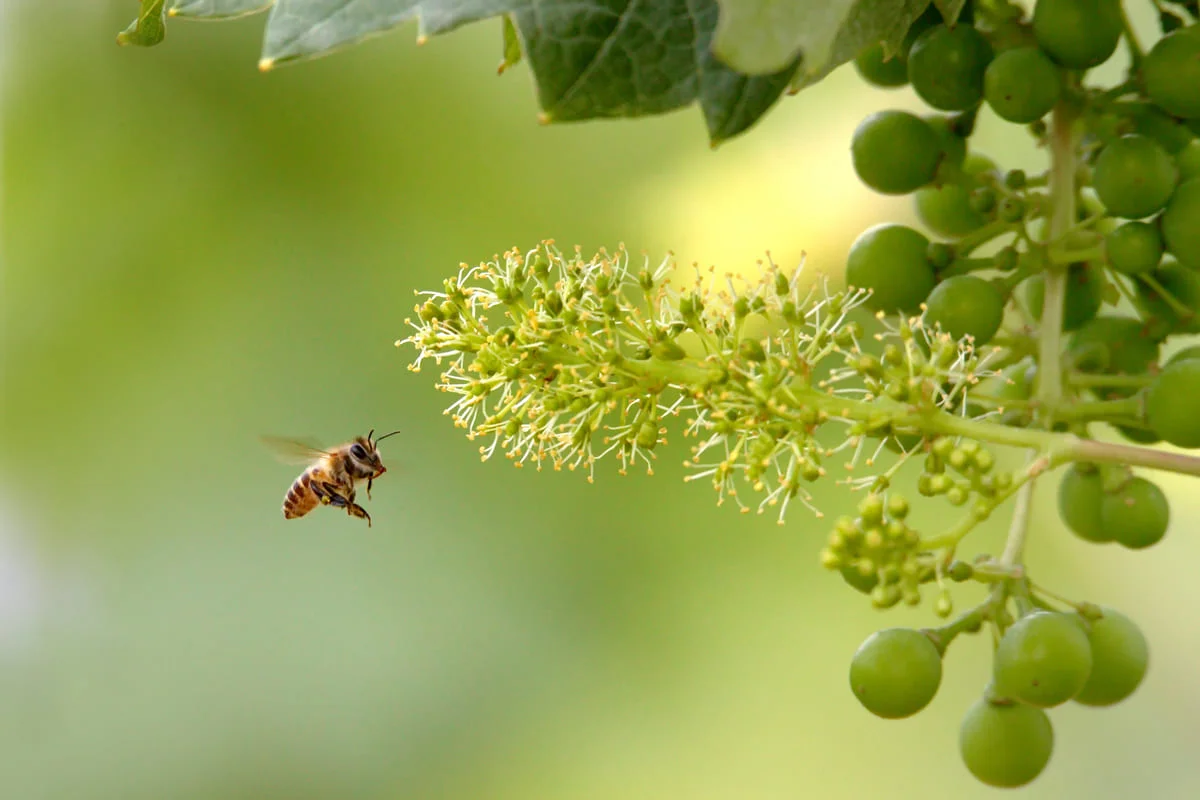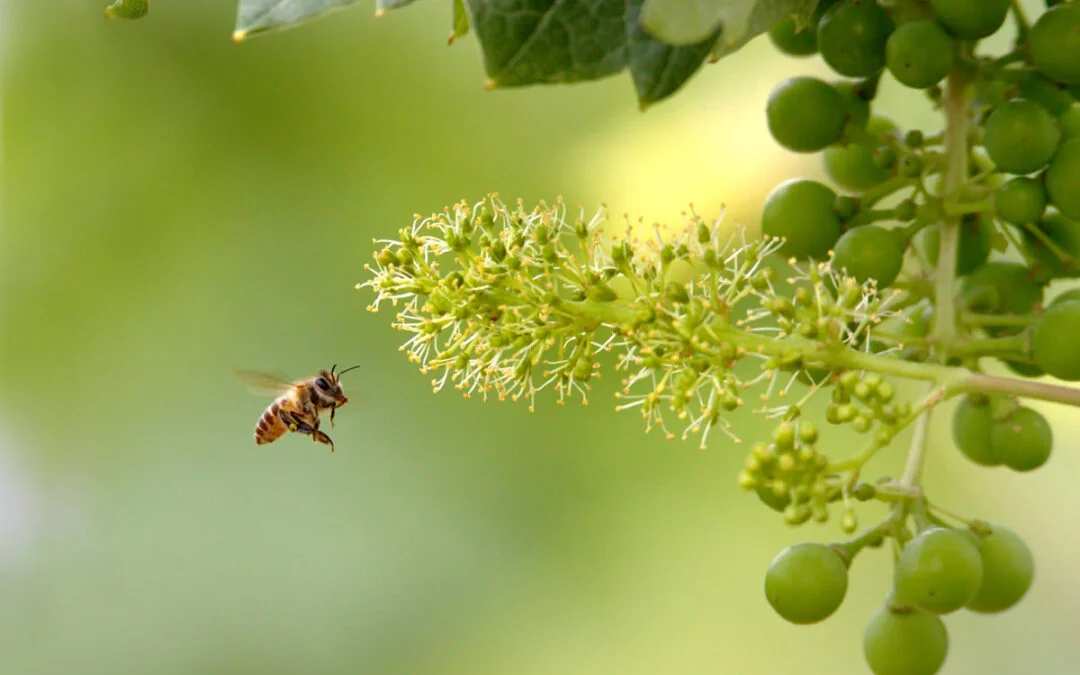Bees Please: Pollinators in Regenerative Farming

“Bee!”
The cry rings out, and the family barbeque descends into chaos. Sufferers of anaphylaxis dive for cover. Brave souls ready rolled-up newspapers, flip-flops, or any other makeshift flyswatter to defend their companions, while kindhearted nature-lovers shriek, “Don’t kill it!”
Long has this been the fate of our oft-maligned pollinator friends – though recent years have seen a marked uptick in those that will defend the honor of the humble bee, as people of all ages have become more cognizant of the incredibly important role they play.
The next time you savor the taste of a blueberry, cherry, or almond, thank a bee! Those are only a few of the many crops that we enjoy in our day-to-day lives that require bees to propagate. But what do bees do for vineyards specifically? You might have guessed that bees are the pollinators of our vines, and while that’s a fair presumption, it’s not true!
Grapevines grown to produce wine contain both male and female reproductive parts, so they don’t require external pollination. This is why bees have not been given much spotlight in conventional vineyard management. However, the way we do things at our vineyard and winery deviates quite a bit from convention.
Our firm belief in the benefits of regenerative farming, which promotes biodiversity instead of monoculture, is what sets us apart from other winegrowers. Though vines are indeed the plant we are most concerned with, that doesn’t mean we shun all others! Each year, we’ll sow around fifteen different species of plants between our rows of vines to act as a cover crop, improving the health of our soil and attracting all sorts of insects, including bees.
Attracting an assortment of bugs to your crops might seem counterintuitive, but it actually makes perfect sense. We select plants that attract only the insects we want. This includes pollinators of course, and also predatory bugs that feed on our more unwelcome guests: vine mealybugs. The bees we attract allow our cover crops to proliferate, creating an excellent home for the predators and creating a little ecosystem that takes care of any pest problems we may encounter – all without the use of toxic insecticides!
Bee populations have famously been in decline over the past decade, and because of our vested interest in maintaining our biodiversity and being stewards of the land under our care, we’ve taken measures to ensure the health of our bee populations. We’ve worked in concert with the local group, Apis Arborea, to construct and hang tree nests throughout our vineyards, which imitate the locations that bees would naturally live in. It has been a massive success – only a month after their installation, we’ve already got two new hives of bees moved in!
In short, bees are crucial to maintaining the delicate balance we’ve struck with mother nature. As we endeavor to be a holistic farming operation, improving the health of the land as we cultivate, we will continue to try and do good by our fuzzy little winged friends.

